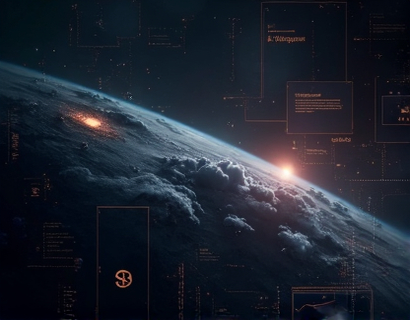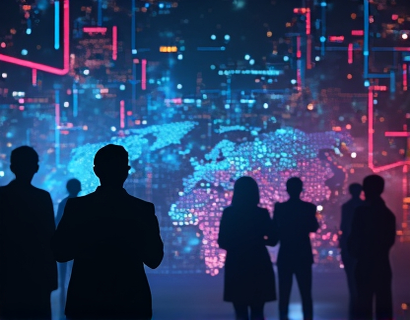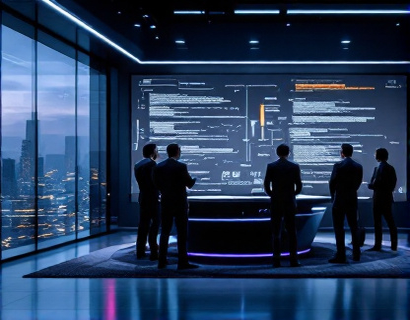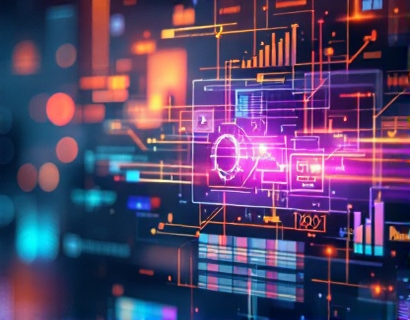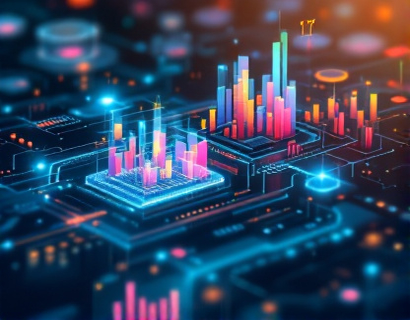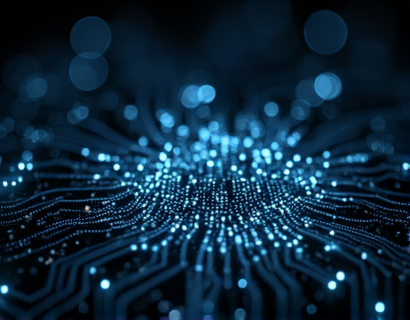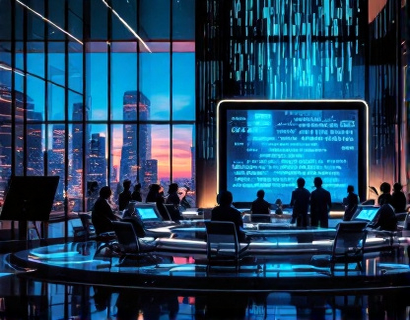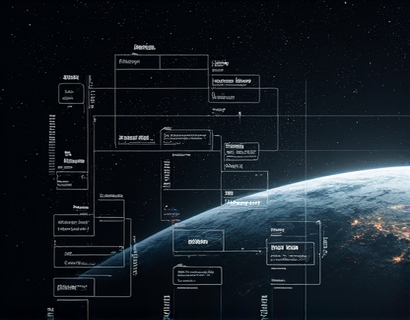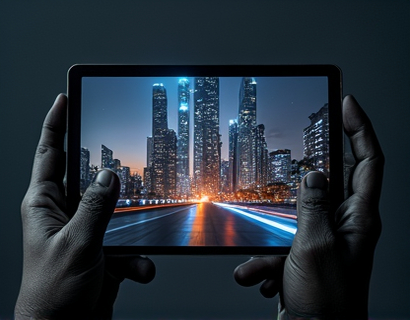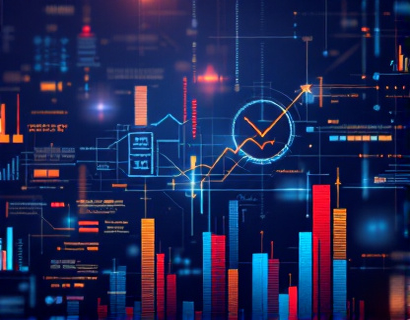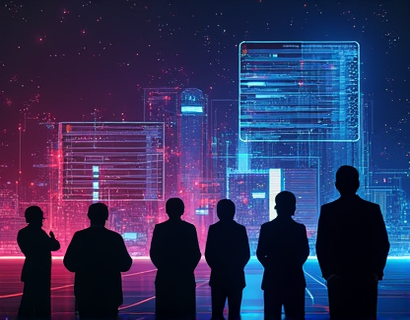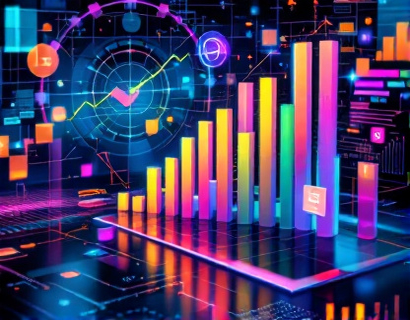Unlocking Productivity: How Crypto and AI Are Revolutionizing Decentralized Applications
The digital landscape is undergoing a profound transformation, driven by the convergence of cryptocurrency and artificial intelligence (AI). This synergy is not just a technological curiosity but a powerful force reshaping the way we approach productivity and efficiency. For tech-savvy professionals and early adopters, the integration of these advanced technologies offers unprecedented opportunities to enhance their workflows and unlock new levels of productivity. This article delves into the future of decentralized applications, exploring how crypto and AI are redefining the digital ecosystem and providing practical, innovative solutions.
The Intersection of Cryptocurrency and AI
Cryptocurrency, with its decentralized and secure nature, provides a robust foundation for building trustless and transparent systems. When combined with AI, which excels in data analysis, pattern recognition, and autonomous decision-making, the potential for innovation becomes immense. Decentralized applications (dApps) leverage blockchain technology to create platforms that operate without central authorities, ensuring data integrity and user control. AI enhances these applications by automating complex tasks, providing insights, and personalizing user experiences.
Enhanced Security and Trust
One of the most significant advantages of decentralized applications is the enhanced security and trust they offer. Traditional centralized systems are vulnerable to single points of failure and cyber attacks, whereas dApps distribute data across a network, making them more resilient. AI plays a crucial role in this by continuously monitoring and analyzing network activity to detect and mitigate threats in real-time. Smart contracts, self-executing contracts with the terms directly written into code, further ensure that transactions are executed precisely as intended, reducing the risk of fraud and errors.
Improved Efficiency and Automation
AI-driven automation is a game-changer for productivity in decentralized applications. Routine and repetitive tasks can be offloaded to AI algorithms, freeing up human users to focus on higher-value activities. For instance, in a decentralized marketplace, AI can handle inventory management, price optimization, and customer service, ensuring a seamless and efficient user experience. Smart contracts can automate payment processes and enforce contractual obligations, reducing the need for intermediaries and speeding up transactions.
Personalized User Experiences
AI's ability to analyze vast amounts of data allows for the creation of highly personalized user experiences in decentralized applications. By understanding user preferences and behavior, AI can tailor recommendations, content, and services to individual needs. This personalization not only enhances user satisfaction but also increases engagement and retention. In a decentralized context, users have control over their data, and AI can use this data to provide more relevant and valuable services without compromising privacy.
Decentralized Finance (DeFi) and Productivity
Decentralized Finance (DeFi) is a prime example of how crypto and AI are revolutionizing traditional financial systems. DeFi platforms offer a range of financial services, from lending and borrowing to trading and yield farming, all accessible through decentralized applications. AI enhances these services by providing sophisticated risk management tools, predictive analytics, and automated trading strategies. Users can make informed decisions based on real-time market data and AI-generated insights, improving their financial productivity and outcomes.
Supply Chain Optimization
Supply chain management is another area where the combination of crypto and AI is making a significant impact. Decentralized applications can track products from origin to destination, ensuring transparency and traceability. AI algorithms can predict demand, optimize inventory levels, and identify bottlenecks in the supply chain. Smart contracts can automate payments and ensure compliance with contractual terms, reducing delays and costs. This level of visibility and automation leads to more efficient and reliable supply chains, benefiting businesses and consumers alike.
Content Creation and Monetization
For content creators, the integration of crypto and AI opens new avenues for monetization and productivity. Decentralized platforms allow creators to publish and distribute their work directly to audiences, bypassing traditional gatekeepers. AI can assist in content creation by generating ideas, editing videos, and even writing articles. Blockchain-based tokens and NFTs (Non-Fungible Tokens) provide a new way to monetize content, giving creators direct access to their fans and ensuring fair compensation. AI-driven analytics help creators understand their audience better, allowing them to produce more relevant and engaging content.
Healthcare and Wellness
In the healthcare sector, decentralized applications powered by AI are transforming patient care and data management. Patient data can be securely stored and shared across different healthcare providers, ensuring continuity of care and reducing errors. AI algorithms can analyze medical data to provide diagnostic insights and personalized treatment plans. Decentralized health apps can monitor vital signs, track medication, and offer real-time health advice, empowering patients to take control of their well-being. The combination of crypto and AI ensures data privacy and security, building trust in these digital health solutions.
Challenges and Considerations
While the potential of decentralized applications enhanced by crypto and AI is vast, there are challenges that need to be addressed. Scalability remains a key issue, as many blockchain networks struggle to handle high volumes of transactions efficiently. Interoperability between different blockchain platforms is also crucial for creating a seamless user experience. Regulatory uncertainties and the need for user education are additional factors that must be considered. However, ongoing developments and innovations are rapidly addressing these challenges, paving the way for broader adoption and integration.
Future Prospects
The future of decentralized applications is bright, with continuous advancements in both crypto and AI technologies. As blockchain networks become more efficient and scalable, and AI algorithms become more sophisticated, the possibilities for innovation will expand. We can expect to see more intuitive and user-friendly dApps that integrate seamlessly into daily life, from smart homes to wearable devices. The convergence of these technologies will not only enhance productivity but also democratize access to powerful tools and services, empowering individuals and organizations worldwide.
For those eager to explore this exciting frontier, the resources are abundant. Online communities, forums, and educational platforms offer valuable insights and practical guidance. Engaging with these resources can help tech enthusiasts and early adopters stay ahead of the curve and leverage the full potential of decentralized applications enhanced by crypto and AI.




